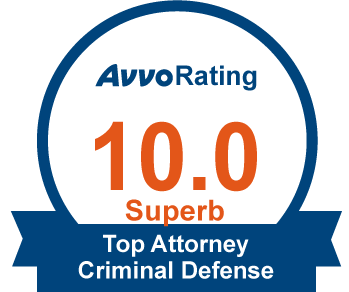California's Juvenile Court System
In California, most criminal charged leveled against minors (those under 18 years old) are dealt with by a special juvenile delinquency court.
This court also deals with more minor offenses alleged against minors, called "status offenses," such as violating curfew or being truant from school.
An informal juvenile court will handle mere infractions and lower level misdemeanor offenses. And there is also a juvenile dependency court that deals with the abuse, neglect, or abandonment of minors.
Finally, note that juvenile courts are technically outside of the ordinary California justice system and are considered (under Section 602) part of civil rather than criminal law enforcement.
Therefore, juvenile proceedings are said to be adjudicated rather than tried. There is no jury, although both defense and prosecuting attorneys are used. And the goings on are fully confidential.
And due to the special status of juvenile court cases, you say "the petition is sustained or not sustained" rather than the defendant is "guilty or not guilty." And the "sentence" is called a "disposition."
The Stated Goals of the Juvenile Court System in California
If the goal of much modern adult sentencing is rehabilitation rather than or in addition to punishment, the goal of juvenile dispositions is said to be exclusively for rehabilitation purposes.
A minor may be put on informal probation and have his/her charge dismissed upon successfully completing probation. Or, the minor may be sent to a "minors-only prison" run by the CYA (California Youth Authority.) It is also possible the juvenile will be put into state-approved foster care, sent to a "probation camp," or allowed to serve out probation while at home. Minors may also be made to attend victim impact classes, pay fines, make full restitution, or complete so many hours of community service.
Note that juveniles can be made "wards of the court," when given their sanctions/dispositions, which means that the court now takes primary responsibility for the minor.
Again, the purpose of juvenile court is to rehabilitate errant youths through education, service, and other means, so that they can be reunited with their parents and family and grow up to become productive members of society.
Current Issues in California's Juvenile Court System
Many have criticized the California Juvenile court system in recent years on a variety of grounds. In 2003, California was successfully sued for excessively poor conditions and excessive force being used by the CYA. Drugs, mace, and cages were often used to control the "inmates." And inadequate medical/mental health treatment were also cited. By the following year, CYA officials willingly consented to fix the problems.
And further suits and other problems, including the excessive costs of the juvenile court, is leading to a "realignment" of control of the system from state to county level. Only the most serious or "hard" cases are typically handled at the state level these days.
And there are promising programs being run by the CYA these days as well, such as the Pups & Wards Program and the Rustic & Fenceless Probation Camp of Sonoma County. The results of the juvenile justice system are mixed, just as with the adult system, but there are many groups continually pushing for further improvements.
Will I Be Tried as a Minor or as an Adult?
For the most part, anyone under 18 years old will be tried as a minor instead of as an adult. That puts you within the juvenile court system's jurisdiction.
The age discrimination is based on how old one was at the time of the alleged crime, not on the current age. And even if the alleged crime was not discovered until after one is 18 or older, so long as one was not yet 18 at the time it allegedly occurred, this rule still applies.
But, there are exceptions to the 18 years old rule. For example, any 14 or older is tried as an adult if the charge is any of the following: murder, rape, spousal rape, group rape, lewd/lascivious acts against a child under 14, oral copulation by force, and arson resulting in "great bodily harm."
Actually, there are 30 such offenses, listed under Section 707b of the California Penal Code, with robbery, kidnapping, attempted murder, assault with a firearm, carjacking, torture, drive by shooting, and manufacture or sale of a controlled substance being further examples.
Trial as an adult is automatic in Section 707b cases, if the child is over 14, unless the presiding judge decides to have the minor tried in the juvenile system based on such factors as:
- Lack of criminal sophistication.
- High degree of probable rehabilitation in the juvenile system.
- A prior juvenile record either doesn't exist or is not very severe.
- Lack of multiple failed attempts at rehabilitation previously.
- The specifics of the case amount to serious "mitigating factors."
Direct Filing or a Fitness Hearing?
In certain cases, the prosecution can directly file against the minor in adult court, but in other cases, he/she must file for a fitness hearing which will allow the presiding judge to decide where the minor will be tried.
For minor defendants 16 or older, direct filing requires a 707b charge and a prior that is a felony and was committed when the defendant was over 14. And that felony must have been either a gang crime, a hate crime, or committed against an elderly or disabled person.
For minor defendants 14 or older, direct filing can be done if the offense (were it committed by an adult) would be punishable by death/life in prison. Or, if a felony was committed with a firearm or if a 707b offense was allegedly committed where a previous 707b offense is already on his/her record or if it was gang-related, a hate crime, or committed against an elderly or disabled person.
However, note that you cannot be tried under the juvenile court once you reach 21 or 25 if it was a 707b offense. That means that late filings where juvenile court jurisdiction would have applied could mean that no charge can be filed at all.
The Juvenile Court Process in California
When a minor is arrested in California, it's possible that he/she will be released after receiving a reprimand and not even be subject to any court process at all.
But police may also decide to hand the minor suspect over to a county probation department and have him/her kept at a juvenile hall (instead of county jail facility.) A petition (as opposed a "charge," technically, may then be filed.)
A petition can be filed to try the minor as an adult or to have a fitness hearing to decide the matter. But if someone is to be tried in the juvenile system, they will then go on to a "jurisdiction hearing" (which is equivalent to a trial in the adult system) and possibly a "disposition hearing" (equivalent to the sentence being delivered.)
And it is possible for a "resolution" between prosecution and defense to be agreed upon (equivalent to a plea bargain) at any point, given the judge is also agreeable to it.
Note that the minor's parents are allowed to attend every step of the process, and that if errors occur, a rehearing can be petitioned for (equivalent to an appeal.)
Possible Results of a Juvenile Court Case
At Long Beach Criminal Defense Attorneys, we can put up a solid defense for defendants who are minors. We can fight to ensure they are tried in the juvenile and not in the adult system. And once in that system, we can bring forth exculpatory and mitigating evidence and factors in favor of our client.
It is often possible to defeat the petition entirely and avoid all rehabilitation. But if that is not a realistic outcome, in certain cases, then we can fight for a favorable agreement or a lighter sentence and/or reduced charge.
Here are the possible ways, besides a full victory, that a juvenile court case could end:
- Informal probation for a non-violent first offense. Trespassing or vandalism may often result in this kind of "disposition" (sentence.)
- Welfare and Institutions Code Section 654 Diversion. This may apply for minor crimes like shoplifting, where the charge can be dismissed and kept off the minor's record after completing probation. This disposition would involve counseling that could last up to 6 months.
- W&I Code Section 725 informal probation. Here, a petition is filed against the juvenile, but it is deferred to give him/her a "second chance." There is no admission of guilt and the petition is dismissed if/when probation is fulfilled. Curfews, drug testing, counseling, and other terms may apply to the probationary period (of 6 months.)
- DEJ (deferred entry of judgment) under W&I 790.20. This option has the juvenile admit guilt but still allows for ultimate dismissal of the petition should the minor comply with various stipulations across a one to three year period.
- Formal probation at home. It may be for more serious offenses or repeat offenses that the court will take the minor as its ward and then assign him or her to formal probation. This can be completed at home or at the home of a relative, however, and not necessarily at a state facility.
- Formal probation at a camp. In more serious cases, the juvenile may have to attend a state-run juvenile rehabilitation camp. This can last from 3 to 12 months and will involve a highly structured environment. There are many such camps (70 or so in California and many in the L.A. Area.) There, activities like forestry, firefighting, and more are integrated with educational programs.
- Commitment to the CYA facility. The CYA (California Youth Administration) facility is much like a prison for minors. It is the most severe punishment possible for those tried under the juvenile court system.
Finally, note that an adjudication against you while a minor can often affect you long afterwards. Certain severe offenses can even result in a sustained petition that will count as a strike under our state's Three Strikes law. And it is even possible for sex offender registration to be required of juveniles.
But in many instances, with the right legal help, you can get a juvenile record sealed, given completion of probation and avoidance of further criminal offenses.
Contact Us Today For Help
At Long Beach Criminal Defense Attorneys, we have extensive expertise in defending against all manner of juvenile crimes. We are fully familiar with the state juvenile court system and with local Long Beach and Southern California juvenile court procedures.
For immediate help in defending yourself or your child against any and all California criminal charges, call us anytime 24/7/365 at (562) 308-7807. Or, feel free to meet with us in-person at our office.








